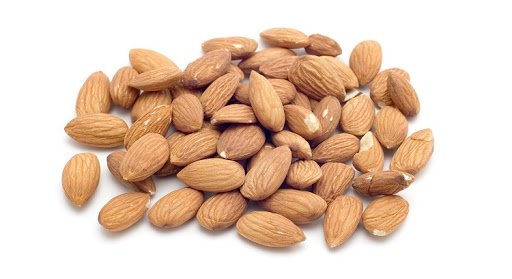The Productivity Series: Nutrition and Productivity
Healthy eating is an essential part of a healthy lifestyle, but most people are likely to think about healthy nutrition only in connection with either weight loss or health in general. Only very few will connect eating habits with productivity at work.
Research conducted by scientists at Brigham Young University revealed that employees with unhealthy diets were 66% more likely to report a productivity loss than healthy eaters. The foods we eat have a direct impact on our work performance, so if you want to increase your productivity, you should pay close attention to your eating habits.
How Poor Nutrition Affects Our Performance
Numerous scientific researches confirmed that the food we eat can affect our health. The modern diet full of processed food usually lacks essential nutrients because of patterns of eating that lead to their inadequate intake. Such a diet can lead to the development of coronary heart disease. It also causes diabetes, hypertension, and obesity. These chronic health conditions can result in productivity loss at home and work and have a negative impact on the quality of life. When your body feels poorly, your mind suffers too and doesn’t function properly.
An unhealthy diet does not provide you enough energy for your everyday needs. On the contrary, it leads to fatigue, causes poor mental health, provokes irritability, increases stress and depression, reduces your ability to think clearly and work effectively. As a result, unhealthy nutrition has a bad impact on your productivity, especially if you work in a creative environment.
Healthy Diet and Productivity
Healthy eating means consuming a variety of foods from all food groups with right quantities of nutrients to maintain your health and have energy. These nutrients should include protein, carbohydrates, fats, water, vitamins, and minerals. Healthy eating has a positive impact on cell development in the brain, and the benefits of keeping a healthy diet are numerous. Some benefits in this series include;
It helps reduce the level of stress.
Studies have revealed that people who maintain healthy eating habits are less likely to suffer from depression or have mood disorders. When you eat healthy food, you can cope with your stress quicker and concentrate on your work better.
It helps you be physically and mentally active.
Nutrients that are present in our food affect not only our physical but mental health as well. Healthy nutrients improve the brain functioning that allows you to handle work challenges. The following nutrients can improve brain health and overall productivity:
- folate, found in beans and greens
- omega-3, fatty acids found in fish
- vitamin C, found in berries and citrus fruits
- vitamin E, found in nuts and vegetable oils
Healthy Foods That Improve Your Productivity
A well-balanced diet should include healthy foods that energize us and fuel our brains. Foods that contain low glycemic carbohydrates and healthy proteins and fats provide brain with more sustained energy. You should eat fruits and vegetables, whole grains, seeds, nuts, and healthy oils to feel full of energy.
Here is the shortlist of foods that will help you think and work better.
1. Blueberries
Blueberries are antioxidant superfoods. They have a great combination of antioxidants and a high amount of gallic acid, which can protect our brain from degeneration and oxidative stress and boost our focus and memory. They are also packed with antioxidants and phytoflavinoids, these berries are also high in potassium and vitamin C, making them the top choice of doctors and nutritionists. The amazing think is that they are common are not costly. You can find blueberries in major markets in Nigeria.

2. Almonds
These tasty nuts are rich in healthy fatty acids, antioxidants, and plant protein. They support healthy brain function and prevent cognitive decline. Almonds contain lots of healthy fats, fiber, protein, magnesium and vitamin E. The health benefits of almonds include lower blood sugar levels, reduced blood pressure and lower cholesterol levels.

3. Whole grains
Eating more whole grains is an easy way to make your diet healthier. Whole grains are packed with nutrients including protein, fiber, B vitamins, antioxidants, and trace minerals such as iron, zinc, copper, and magnesium. Examples of whole grains include whole wheat and whole wheat derivates, oats, brown rice, barley, corn, quinoa, rye, buckwheat, and millet.
4. Spinach
You can have it raw in salads, steamed, blended in a soup or sautéed with other veggies. It is a very versatile ingredient that can be used in many ways. Spinach is rich in vitamins A, C and K, magnesium, iron and manganese. Eating this leafy green vegetable may benefit eye health, reduce oxidative stress and reduce blood pressure levels among other health functions. These greens contain a lot of antioxidants and can help improve learning capacity. There are different types of spinach. The one found in Nigeria is called the African spinach.

For this and much more Information relating to employability skills, employment opportunities, career advancement and entrepreneurship development; Join our Telegram and WhatsApp groups, and also follow us on Twitter and Facebook.




November 23, 2020 @ 5:38 am
Wow! Thank you very much for this post.
I have a colleague that is as witty as a wizard. Now I can say that healthy diet is one of his secrets.
November 23, 2020 @ 7:31 am
Wow, have been careless in my diet choice, but with this I will be more careful and ready to make my diet right. But I was expecting to see you list more of the nutritious meals.😊.
Thanks for the info
November 23, 2020 @ 3:31 pm
Thanks for sharing. Some foods we actually neglect not knowing the importance.